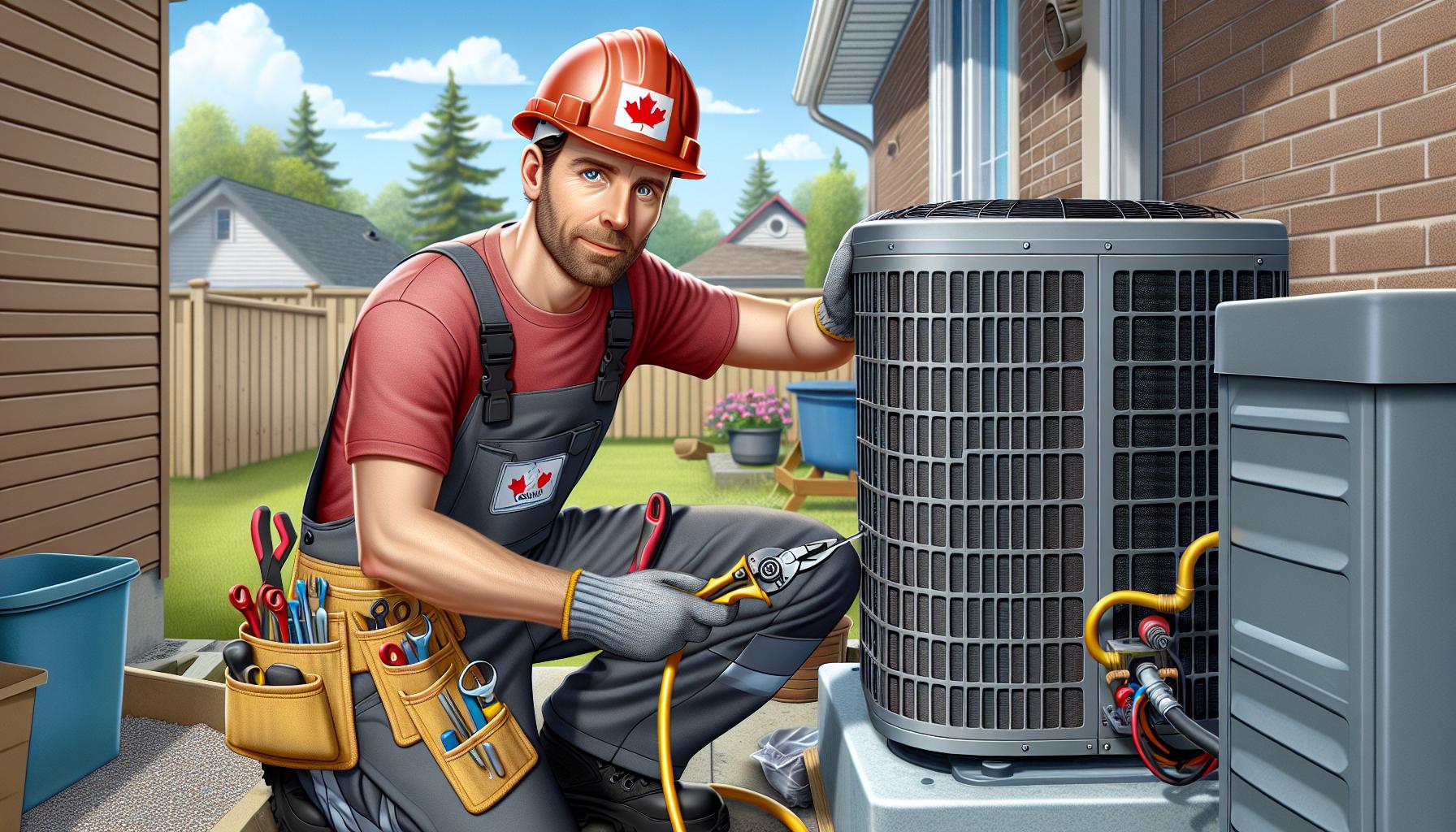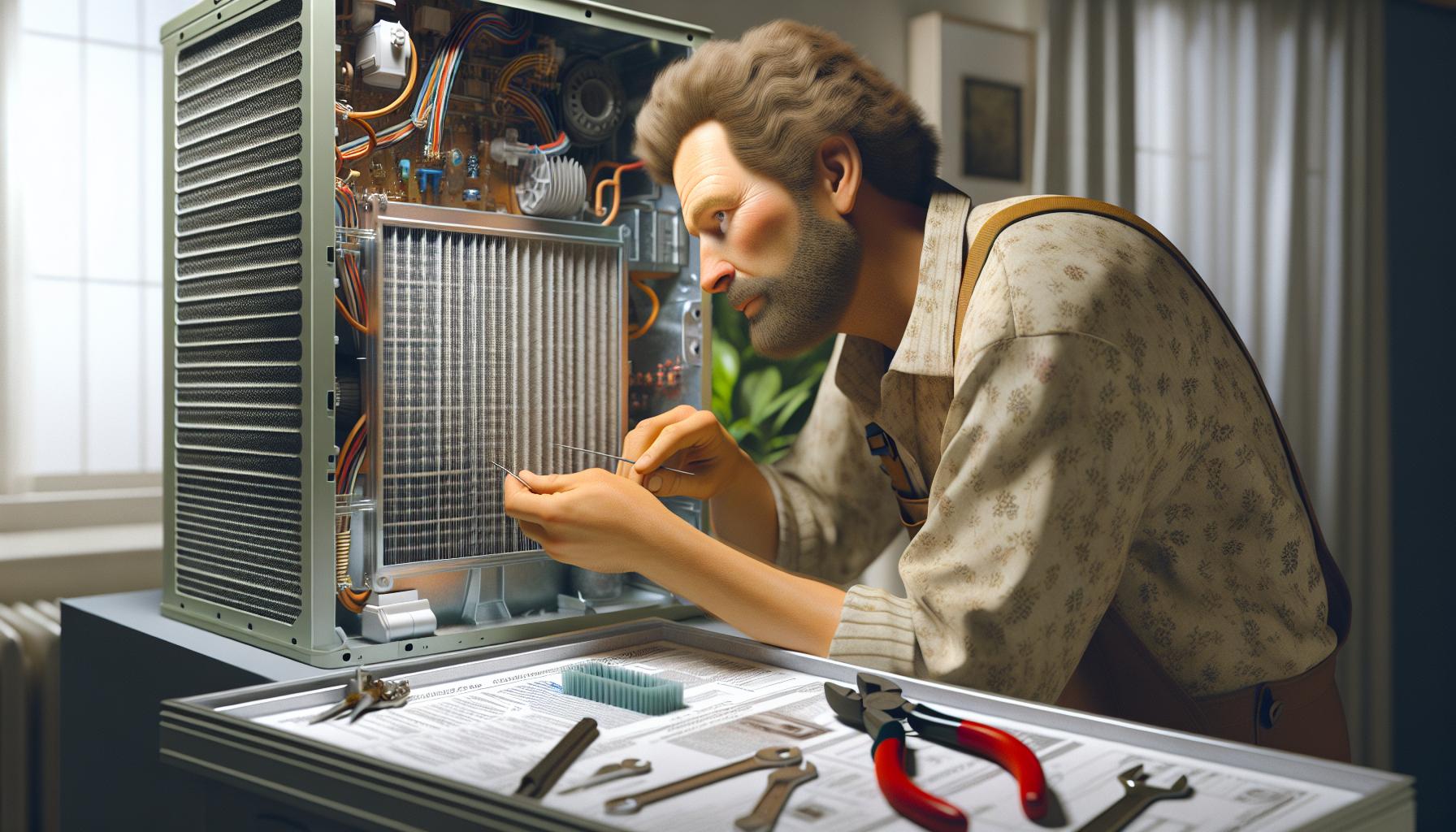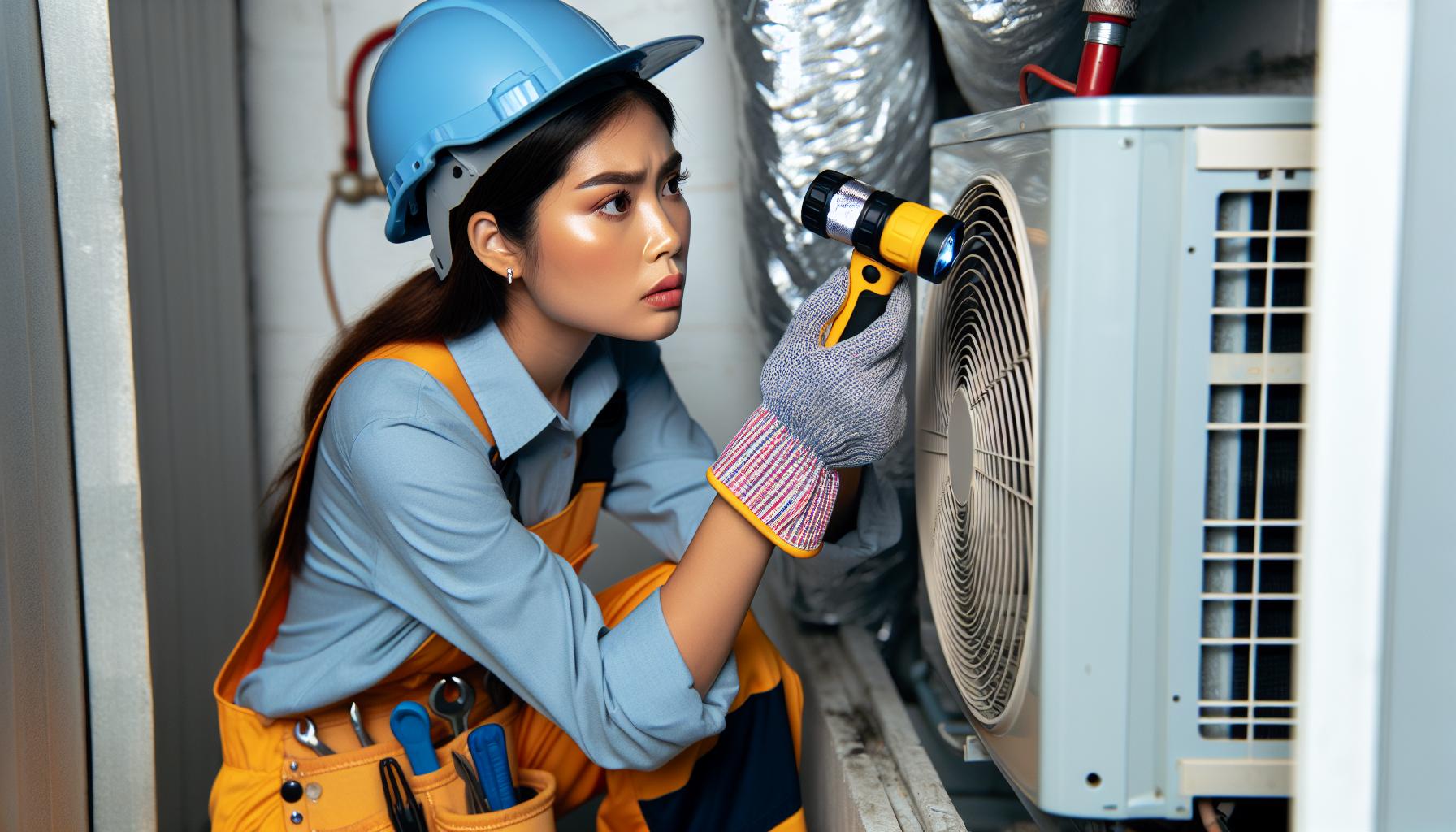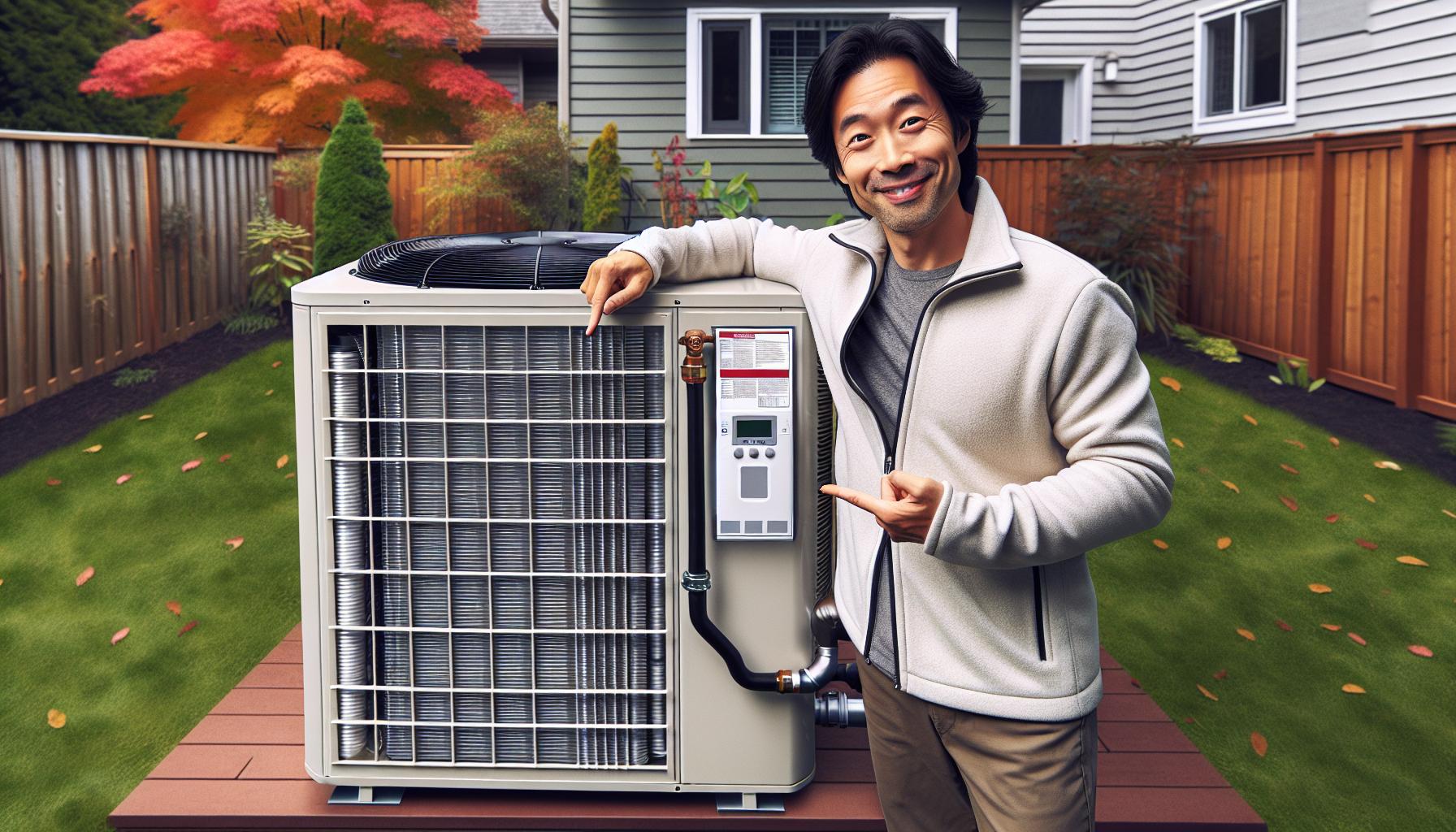Understanding Why Your Air Conditioner Is Leaking Water
Imagine this. It’s just another regular day at home until something odd catches your eye – a puddle of water around your air conditioner. Seeing this, you may naturally wonder, “is it normal for an air conditioner to leak water?” The answer is, not necessarily. Understanding the reasons behind the leak is crucial in diagnosing and mitigating the issue. This section delves into the common causes of water leaks in air conditioners and explains how water forms inside the unit.
Common Causes of Water Leaks in Air Conditioners
Air conditioners are complex machines and the cause of a leak could be due to many factors. Here are some of the culprits:
- Clogged Drain Line: Let’s imagine your drainage system as a busy highway. Over time, dirt, dust, and mould, like reckless drivers, can cause congestion, obstructing the smooth flow of water, leading to a leak. So, if you’re pondering “what causes my air conditioner to leak water,” a blocked drain line may be the culprit.
- Condensate Pump Failure: Sticking with our highway analogy, consider the condensate pump as the traffic police. They’re in charge of removing traffic (or, in this case, excess water). If the condensate pump stops working, water can accumulate and eventually leak out.
- Damaged Drain Pan: It’s your basic collection bin for water. Now, if it springs a leak or rusts, water can spill over and result in leakage.
- Faulty Evaporator Coil: Working as a cooling agent, a faulty evaporator coil can lead to refrigerant leaks. This can cause water to accumulate and leak out of the unit.
- Improper Installation: If your air conditioner isn’t correctly fitted, it may lead to improper drainage or condensate collection, causing leaks.
How Water Forms inside Your Air Conditioner
As the air conditioner cools your room, it also extracts excess moisture from the air. This forms condensation on the cooling coils inside the unit. This condensation then collects in a drain pan and moves out of your home via a condensate drain line.
When things are running smoothly, you won’t even notice this process. But, if there’s a disruption in this system, it can lead to a backup of water, or in simpler terms – leaks.
Common Culprits Behind Leaking Air Conditioners

Clogged or Disconnected Condensate Drain Lines
A primary cause of water leaks in an air conditioner is clogged or disconnected condensate drain lines. Typically, these lines become blocked due to a buildup of algae, dirt, or mold. This blockage can prevent the condensate generated by your air conditioner from properly draining, causing it to overflow and leak.
Here’s a simple approach to deal with this culprit. Locate your drain line near the condenser unit outdoors, remove the cap to access the point and inspect for blockages. In case of a mild obstruction, you might be able to clear it using gloves. For a more stubborn clog, an application of distilled white vinegar left for about 30 minutes may prove effective, before rinsing it out with water.
Damaged Drain Pans
Another common perpetrator behind air conditioner leaks is a damaged drain pan. Situated beneath the AC’s evaporator coils, the pan collects dripping condensate. If it is rusted or broken due to aging or wear and tear, water starts to leak instead of being directed into the drain line. Drain pans inside an air conditioner unit of around 15-20 years old may show such signs of aging.
Addressing a faulty drain pan may involve a patchwork for minor cracks using a water-resistant sealant, after cleaning the pan thoroughly and identifying the cracks. But, remember, it’s merely a temporary fix. Eventually, you’d want to consider replacing the damaged pan, ensuring the replacement is the right size for your AC.
Frozen Evaporator Coils
Frozen evaporator coils are another prevalent reason for water leaks in the air conditioner. Normally, when the coil freezes, it leads to a subsequent melt, causing an excess of water that the drain pan may not manage to handle, triggering a leak.
A classic solution to this issue is to turn up the temperature or switch off your AC, allowing the coil time to thaw. Later, seek to diagnose the reason(s) behind the freezing, which could be anything from low refrigerant levels to insufficient air flow.
Faulty Condensate Pumps
Finally, faulty condensate pumps can cause your air conditioner to leak water. A pump is responsible for transporting excess water from the unit. A failing or malfunctioning pump could see water accumulate and leak out. In such a scenario, it’s best to seek the professional expertise of an HVAC technician to diagnose the issue accurately and replace the pump.
So if you ever find yourself asking, “What causes an air conditioner to leak water?” or “What to do when an air conditioner leaks water?” the above points should offer some insight into the how to fix a leaking air conditioner. Remember, timely maintenance and regular unit checks can prevent these common problems, saving you from costly repairs down the line.
DIY Checks and Fixes for a Leaking Air Conditioner

Many might question, “Is it normal for an air conditioner to leak water?” Fortunately, solutions exist for you to identify and rectify the issue on your own. Let’s jump into some crucial aspects, including checking and cleaning air filters, examining condensate drain lines, and assessing drain pans and pumps for damage.
Inspecting and Cleaning the Air Filter
An incorrectly functioning air filter is a common cause of a leaking air conditioner. Impurities, such as dust particles, often block the filter, restricting airflow through the coil. On the coil becoming too cold, it freezes, leading to an accumulation of water that may result in a leak when it thaws.
Start with switching off your air conditioner to prevent further damage. Next, locate your air filter, usually found inside the return air vent or within the interior AC unit. Carefully remove it, and if it appears dirty, it’s time for a clean-up. Using a gentle brush, clean away the debris and let the filter dry before replacing it. It’s vital to perform this cleaning routine once every month for an efficient air conditioning system.
Checking and Clearing the Condensate Drain Line
A clogged condensate drain line is often the culprit behind water leaks. Over time, your drain line can become blocked with mold, dirt, or other debris.
With your AC system turned off, ensure that the drain line is properly connected. If it seems clogged, use a wet/dry vacuum, or better yet, a pressurised commercial drain cleaner to clear the line. Once cleared, turn your AC back on, and if it no longer leaks water, you’ve successfully resolved the problem.
Assessing the Drain Pan and Pump for Damage
A damaged or faulty drain pan and pump also contribute to water leaks. Leakages occur when these components fail to function efficiently, causing water to build up and overflow from the unit.
Examine your drain pan and pump for any damage. If you notice the pan has cracks, patch it up using a water-proof tape. But, in the case of extensive damage, consider replacing it. The pump, too, requires your attention. If it seems to have malfunctioned, you might need professional help to replace it.
Apart from these measures, regular maintenance of your air conditioner is essential to prevent leaks. With routine checks, you can address minor problems before they escalate into major ones.
When to Call a Professional for a Leaking Air Conditioner

Understanding the reasons behind your air conditioner leaking water can aid you in basic troubleshooting. Problems range from a clogged drain line to a faulty evaporator coil. But, specific issues aren’t as simple as “what causes an air conditioner to leak water” and solve with DIY methods.
For instance, an indicator of a damaged condenser can be cracks in the housing or leaking coolant. It’s best to summon a professional technician upon noticing these issues. They can inspect your condenser and discover whether it demands repair or replacement. In fact, you might think, ‘how to fix an air conditioner leaking water?’ but upon a technician’s investigation, they offer a verdict like a new gasket or sealant against your initial diagnosis.
Of course, it isn’t normal for an air conditioner to leak water. If such an event occurs, address the situation immediately. Remember, delaying can lead to more substantial damages to your ceilings, walls, or other nearby structures. So, taking immediate action can save you from a real problem shortly. If you observe water pooling under your indoor air handler, it’s wise to turn off the Air Conditioner at the breaker box and ring a professional.
Here’s a tip: Make sure you’re performing routine HVAC unit maintenance every spring and fall. Also, many homeowners have the knowledge to do small repairs and efficiency enhancements. After all, the goal is to ensure that your cooling system is in optimal condition, especially before the hot summer months approach. Consider it as a preventive measure. It’s better to be safe than sorry.
So knowing, ‘what to do when the air conditioner leaks water’ isn’t enough. At some stage, you need to determine precisely when to call a professional for a leaking air conditioner. It’s about distinguishing between a task you can handle and when the issue requires an expert touch.
Conclusion
So, you’ve learned why your air conditioner might be leaking water. It’s often due to common issues like clogged drains or faulty components. You’ve also picked up some handy DIY fixes like cleaning air filters and unclogging drain lines. But remember, some problems like a damaged condenser or leaking coolant need a professional’s touch. Don’t hesitate to call in the experts when necessary. It’s all about acting swiftly to prevent further damage. Finally, don’t underestimate the value of regular HVAC maintenance. It’ll help keep your system in top shape and make it easier to spot what you can fix yourself and what needs a professional. Keep your cool and keep your air conditioner running smoothly.
Related Posts
- Choosing and Maintaining Your Air Conditioner: Convenience, Efficiency and Eco-consciousness Explained
- Understanding Your Cooling Needs: Types of Air Conditioning Systems Explained
- “Understanding the Role of Your Air Conditioner’s Capacitor: Maintenance Tips and Troubleshooting Guide”
- Understanding HVAC System Replacement for Home Heating and Cooling






